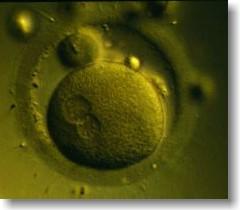

Prenatal development
- Germinal period
- Embryonic period


Fetal period

Early motor development
Schema –cognitive structures or patterns consisting of a number of organized ideas that grow and differentiate with experience
Assimilation – absorbing new information into existing schemas
Accommodation – adjusting old schemas or developing new ones to better fit with new information
Piaget's Stages of Cognitive Development
Sensorimotor stage
Birth to about age 2
Child relies heavily on innate motor responses to stimuli
Mental representations
Object permanence
Preoperational stage
--About age 2 to age 6 or 7
--Marked by well-developed mental representation and the use of language
Egocentrism (video)

Animistic thinking

Concrete Operational Stage
--About age 7 to about age 11
--Child understands conservation but is incapable of abstract thought
Conservation
Formal Operational Stage
--From about age 12 on
--Abstract thought appears


Theory of Mind
 Imprinting (Konrad Lorenz)
Imprinting (Konrad Lorenz)Harlow's attachment study
Mary Ainsworth's Strange Situation
Temperament –An individual’s characteristic manner of behavior or reaction
Socialization –The lifelong process of shaping an individual’s behavior patterns, values, standards, skills, attitudes and motives to conform to those regarded as desirable in a particular society
Most approaches to child rearing fall into one of the following four styles:
Authoritarian parents: parenting style emphasizing control and obedience
Authoritative parents: parenting style blending respect for a child's individuality with an effort to instill social values
Permissive parents: parenting style emphasizing self-expression and self-regulation
Uninvolved parents
Erikson’s Psychosocial Stages (see handout)
Kohlberg’s Stages of Moral Reasoning
I. Preconventional morality
II. Conventional morality
III. Postconventional (principled) morality
Chapter 5 part 1
Chapter 5 part 2
Chapter 6 part 1
Chapter 6 part 2
Chapter 6 part 3
Chapter 7 part 1








